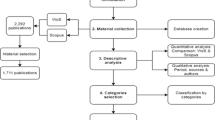Abstract.
Government is studied as supporter of science and of the transformation of scientific discoveries into new technology and firm formation. The importance of scientific discovery outside academe is recognized as is the experimental nature of the transformation process entailing frequent business failure. Competence bloc theory is used to understand the minimum set of actors with competence needed for the incentive structure to be complete and the risk of losing the winners minimized. Competence bloc analysis also helps clarify the theoretical foundations of industrial policy and useful roles for science parks. I find that to succeed as a catalyst for industrial competitiveness park management should be less concerned with science and technology and more with the economics of the transformation process.
Similar content being viewed by others
Author information
Authors and Affiliations
Rights and permissions
About this article
Cite this article
Eliasson, G. Industrial policy, competence blocs and the role of science in economic development. J Evol Econ 10, 217–241 (2000). https://doi.org/10.1007/s001910050013
Issue Date:
DOI: https://doi.org/10.1007/s001910050013




